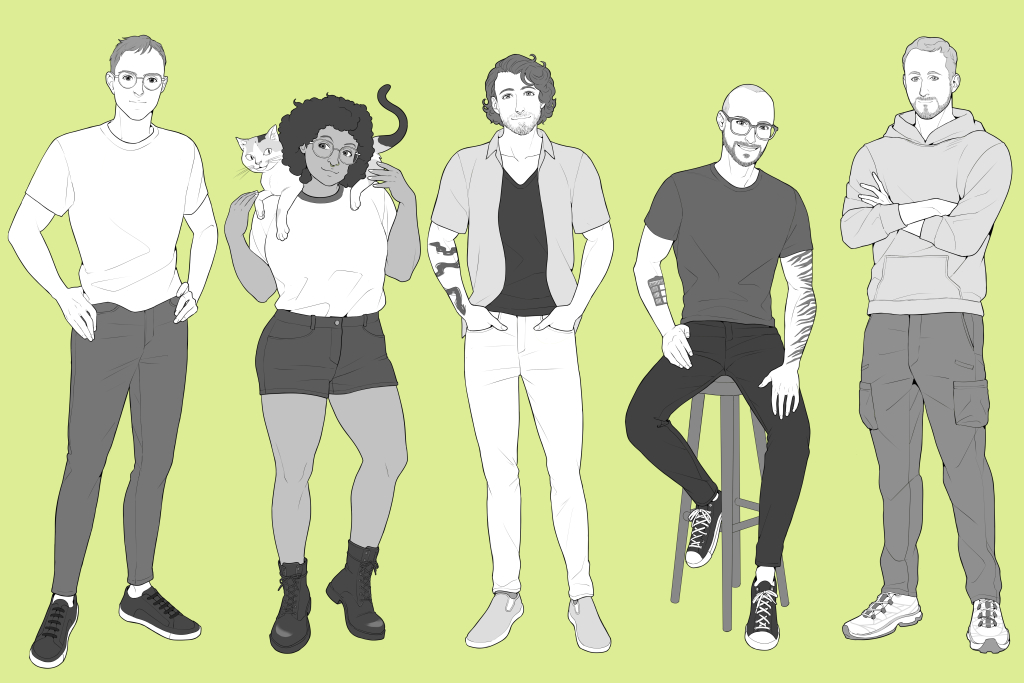Games Journalism Is Moving Toward a New Model: Reader-Funded Journalism
Let's hope this works!

On December 14, Axios Gaming newsletter founder Stephen Totilo announced a very interesting career move: He was going indie: “After a career of covering video games for MTV News, Kotaku, and Axios, I’m launching Game File, a reader-supported site and newsletter for my reporting about video games,” he tweeted.
His post quickly received support. In just 24 hours, he had acquired over 4,800 likes and 550 retweets. Substack’s Game File was a long time in the making, Totilo said in an introductory post. The former Kotaku EIC considered going indie “for years while working for ad-supported media,” and now that he’s finally done it, he’ll rely heavily on readership support for his new journalistic enterprise. The current iteration of Game File offers various subscription tiers, from $10 per month to $250+ per year as a founding member.
Totilo is a respected and established journalist in the games media industry, so the fact he’s turned to reader-supported journalism is a pretty hefty endorsement of the model, but he isn’t the first person in gaming to turn to his audience for support. In fact, in his introductory post, he shouted out another reader-backed venture: Aftermath, a gaming website run by some of the core writers and editors leading Kotaku back during the site’s glorious 2010s years. You know, names like Nathan Grayson and Gita Jackson.
Aftermath launched in November 2023, and it immediately caught my attention. Is this venture the future of games journalism? Maybe yes, maybe no. But I still think it deserves support.
The appeal of reader-funded games journalism
Now is probably a good time to disclose that Nathan is a buddy of mine, and that I’m already an Aftermath subscriber. I wholeheartedly endorse the concept, and while I think ad-supported journalism is here to stay, I also think the reader-backed model can and should be a core part of our industry’s future. It can also operate successfully, even if it’s financially challenging.
Defector, which both Totilo and Aftermath shouted out in their respective introductory posts, recently shared its financial performance during its third fiscal year. While the reader-funded sports and culture site—founded by former Deadspin writers who quit over upper management decisions—has seen the slowing of total subscription revenue growth year-over-year, total revenue increased in year three thanks to income from podcasts, advertising, and other ventures, making them a total profit of $100,000. The venture has shown that if you build it, they will come. It’s clearly inspired folks like Totilo and Aftermath to try the model for themselves.

There are many, many good reasons for games journalists to consider going reader-backed at this point in time. Without advertisers breathing down your neck, you can literally write about anything. If Aftermath wanted to, it could open its own beat covering adult video games and gaming sex toys in explicit detail, all without fearing backlash from advertisers—as we’ve seen when Jezebel covered issues like sexuality and reproductive rights.
It can also investigate and criticize major publishers and developers without worrying about losing future advertising deals, partnerships, and pre-release press copies under embargo. If you don’t have to compete with the Google rat race, you don’t have to push out SEO content with every AAA game’s release, which means Aftermath doesn’t have to play nice to assure it receives copies of Call of Duty every year.
You’re also not necessarily tied down to accessing readers through social media and Google, two platforms known for being incredibly fickle at this point in time. It’s not that Aftermath, Defector, and Game File are completely immune to the middle-man’s whims, but the pressure is certainly off these platforms if the goal is to sustain readership interest for the long term—not individual clicks day-by-day. Journalists are free to cover the beats that interest them, as long as readers are interested, too.
Are there risks involved with going reader-funded?
There’s one flaw I see with reader-backed games journalism, however: Right now, I don’t have ten dollars to subscribe to Game File.
I respect the request and cost, of course. Journalism is hard work. But I’ve been tightening the belt in recent months, as I’ve found I just can’t quite seem to afford all the niceties I once could. A night out costs more than ever now, groceries feel pricier than before, and yes, I’ve got Christmas shopping to plan for. Despite being a homebody who barely buys things for herself, I feel like my dollar just doesn’t go as far as it once did.
I’m not alone. Despite the fact that inflation seems to be lessening, the general feeling in the air in the U.S. is that the economy isn’t great. Despite economists saying our economy is running clean and hot, prices are higher than they were before, and layoffs are so ubiquitous across industries at that moment that even investors are starting to prep for bad times ahead at their own firms. It’s still unclear if retail businesses can expect a decisively profitable Q4, or whether Americans will be stingy spenders during the holiday season.
I’m not optimistic, given sex workers were already feeling the cost-of-living pinch and decline in revenue by August 2023. Belt-tightening is hitting leisurely ventures beyond the adult industry, too. An October 2023 report revealed that viewers were cutting back on subscription services like Netflix and Disney+ for various reasons, from finishing the show they were interested in to simply disliking the increase in price for their service.
Subscription spending in the American gaming market declined in April 2023 as well, with just a 2 percent growth from the same month in the year prior. U.S. gaming and console sales also dropped this past November compared to last year. Even back in October 2022, we already saw early warning signs when console subscription growth slowed down for Xbox Game Pass—although Xbox head Phil Spencer attributed this to the Xbox console market reaching peak saturation.
If sex workers are feeling the economic hit, then certainly other leisurely activities are, too, and I believe for most of us, games journalism subscriptions may be the first to go if you don’t read this stuff for your nine to five. And even if you do, we just saw a glut of games industry layoffs this year. For game devs and games journalists without a job, it’s hard to justify an Aftermath or Game File subscription when you can barely afford rent.
This isn’t to knock Aftermath and Game File. In fact, I don’t think market risks should keep journalists from going indie. We’re in an unstable period right now for our industry, and I want to see our medium’s best writers and editors take risks. I want to see ex-Kotaku reporters break the mold and show the rest of us that digital journalism can exist in new and exciting ways. After all, this breeds innovation for those of us who still work in ad-backed media. We can learn from them, just as they can still learn from us.
So cheers to you, Aftermath and Game File. Go get ’em.
(featured image: gilaxia/Getty Images)
Have a tip we should know? [email protected]